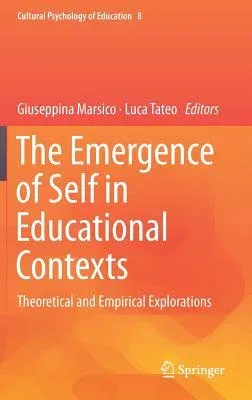This book represents the first extensive introduction to the emerging
construct of Educational Self. The new concept describes a specific
dimension of the Self, which is elaborated in the course of a person's
school life and is reactivated anytime the person is involved in an
educational activity, whether as a student, teacher or parent.
The Educational Self (ES) approach was created by the volume editors and
is currently being developed at various universities in Europe and Latin
America as a way of understanding and operating in educational
contexts.
The book presents the theoretical framework and the empirical
developments of the construct, paving the way for further applications
in education. The main locations of the empirical studies are Denmark,
Italy, Brazil, Portugal and Colombia, but the research network is
steadily expanding to other countries, so that the concept here can be
generalized to different cultural contexts.
The book addresses a range of contexts and moments in school life. The
editors' introduction presents the construct of ES, the opportunities
for further theoretical and empirical developments of the concept, and
its potential applications in educational practices. In the remainder of
the volume, ES is explored for different age groups (from children to
adolescents to higher education), different actors (peers, teachers,
parents and their interactions), different contexts (formal education,
special institutions, school-family relationships) and different
phenomena (disruptive behavior, special needs, value orientation, school
failure, etc.). All the studies share a qualitative idiographic
approach, which is characteristic of the perspective of cultural
psychology in which the ES construct was elaborated.

